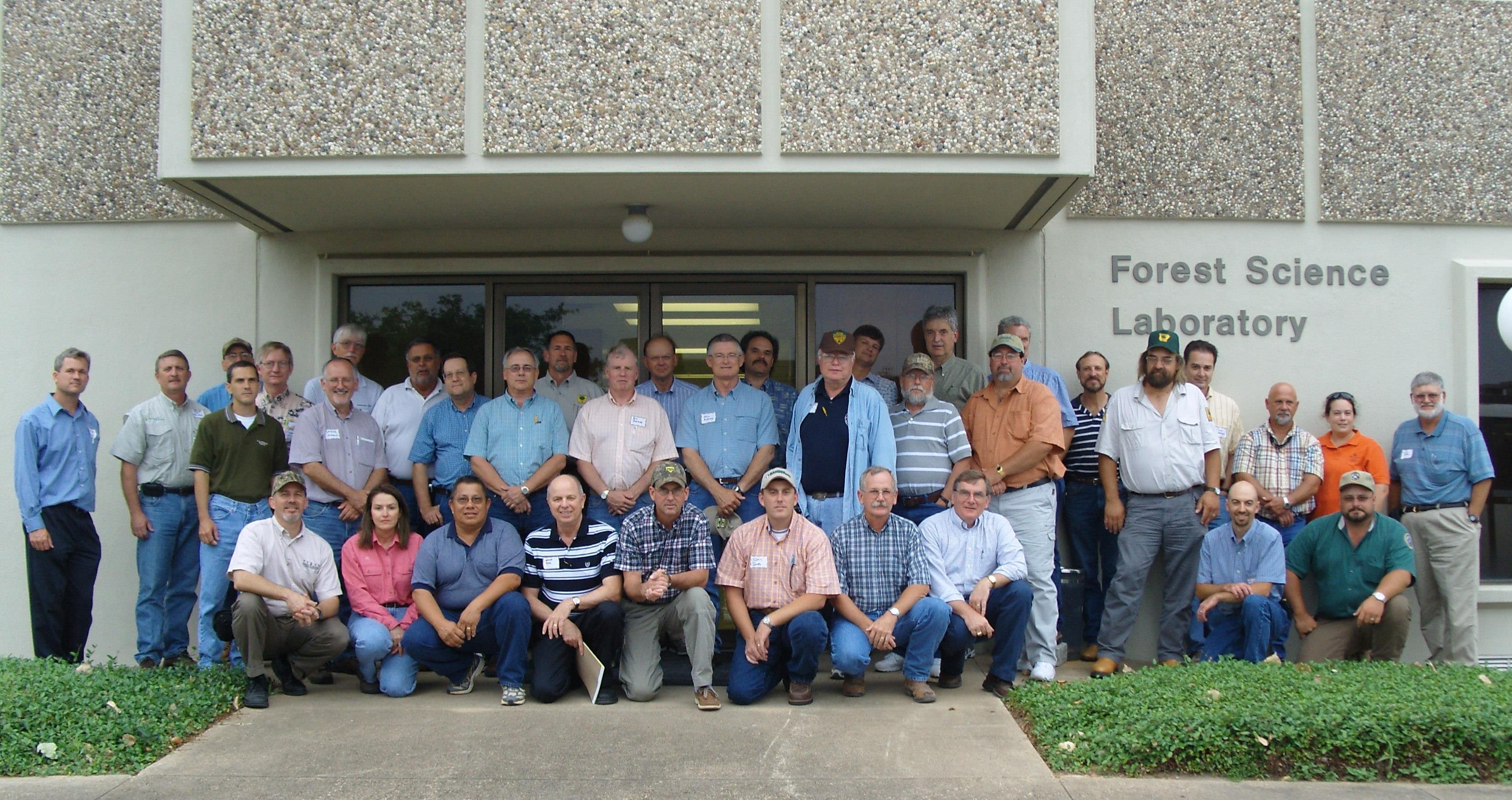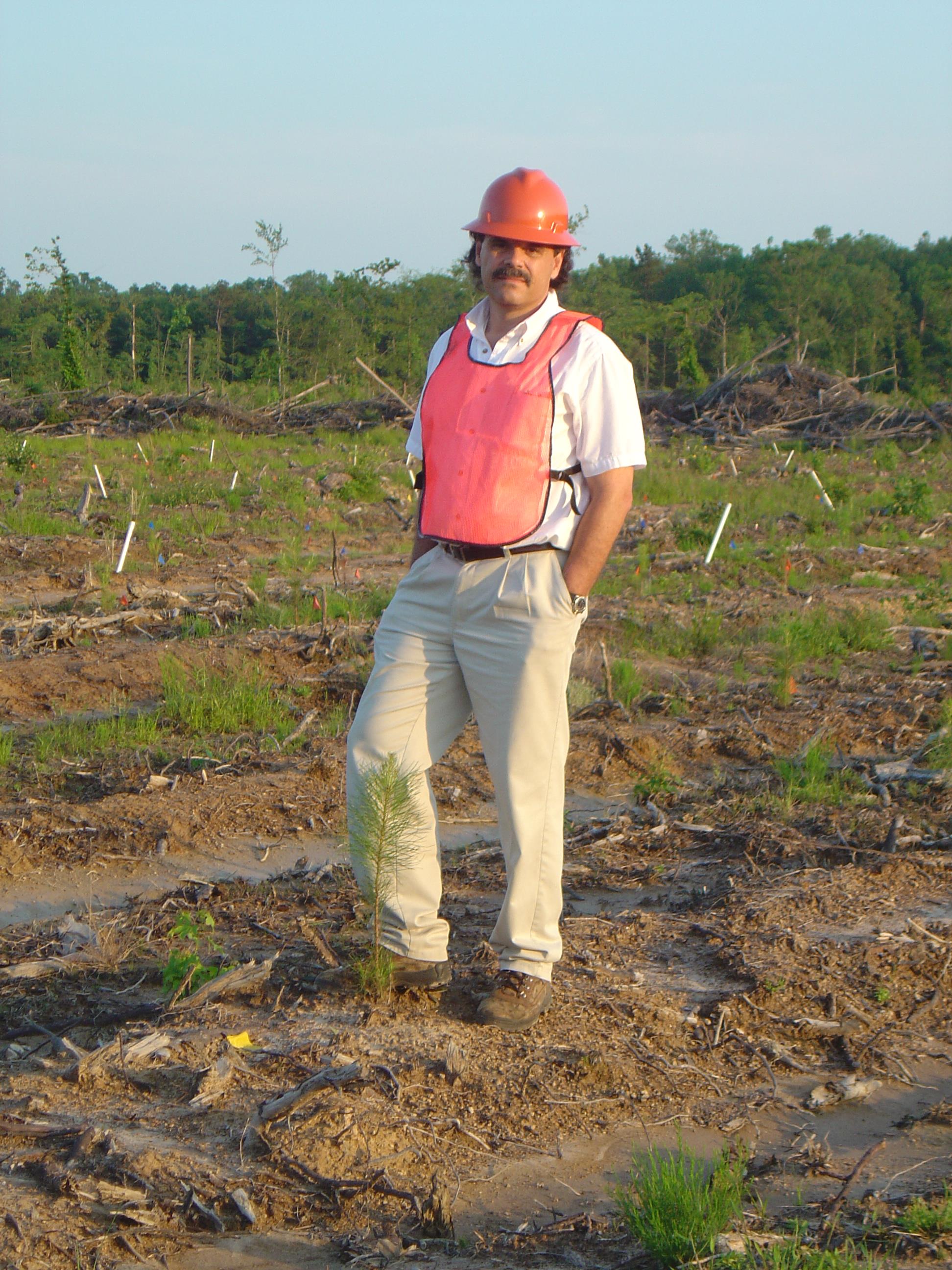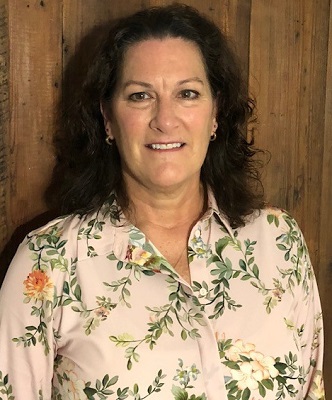The Western Gulf Forest Tree Improvement Program (WGFTIP) was
established in 1969 and formalized the collaborative tree improvement efforts
led by the Texas A&M Forest Service to that point. In recognition of this
leadership, the WGFTIP was, and still is, sponsored by and technically
coordinated through the TFS. This cooperative model allows for members within
a local region to share workloads, thus speeding up the improvement process,
as well as access to the same improved genetics. Early program emphasis was
on establishing the breeding populations of loblolly and slash pines with
membership expanded to include forest industries and state organizations in
Arkansas, Oklahoma, Louisiana and Mississippi. Members of the pine cooperative
with an interest in bottomland hardwoods joined efforts with the TFS to expand
the genetic base for several species and preserve selected genetic material
for future use. The cooperative is preserving and improving populations of
four southern pine species and several hardwood species.
Accomplishments
- The second round of improvement in loblolly pine is nearly
complete.
- Between 0.5 and 1.0 % gain in volume are identified
annually in the program.
- Members maintain nearly 1600 acres
of improved seed orchards.
- Seedling production averaged
nearly 271MM from 2010 through 2012, with 188MM made available to external
customers.
- Region-wide seedling growth improvement averages 30
% compared to unimproved sources.
- Program impacts to forest
landowners include:
- Site productivity on a good site
increased from 5.75 to 7.50 tons per acre per year.
- Present value
based on discounted cash flow from marginal increases in the growth of
lumber and wood products between $5 and $10 per planted acre.
- Annual increase in marginal stumpage value: $2.5 to $5.0 million.
- Current marginal present value of $75 to $150 million added to the
regional wood supply resource annually.
WGFTIP Members
Full members of the WGFTIP pine improvement program (with
regions of operation in parentheses)
ArborGen (TX)
Arkansas
Forestry Commission (AR)
Hancock Forest Management, Inc.
(TX)
International Forest Company (LA)
Oklahoma Forestry
Services (OK)
Rayonier Forest Resources (TX)
Texas A&M Forest
Service (TX)
Weyerhaeuser Company (AR, LA, MS)
Contributing members of the WGFTIP pine improvement
program
Greenwood Resources (TX)
Molpus Timberland Management,
LLC (AR)
RoyOMartin (LA)
Associate members of the WGTIP pine improvement program
USDA Forest Service (Region 8)
Full members of the WGFTIP hardwood improvement
program
Arkansas Forestry Commission
Louisiana Forest Seed
Company, Inc
Texas A&M Forest Service

+ Membership Levels
The WGFTIP currently recognizes four membership
categories. The qualifications and services provide for each appear below.
I.FULL: An organization may qualify for full membership in the
cooperative either as a traditional member or under conditions recommended
by the WGFTIP Director and approved by the Executive Committee within the
following guidelines.
Qualifications for traditional Full
Membership:
- Manage seed orchards.
- Maintain a contribution
to the base breeding population by selecting, preserving, breeding and progeny
testing a number of selections agreed upon with the WGFTIP Director and as
governed by policy adopted by the Executive Committee.
- Meet other
requirements as set forth in policy adopted by the Executive Committee and
expected of all other traditional members.
Qualification
for non-traditional Full Membership:
- Must NOT own or operate seed
orchards, except for breeding.
- Support the base breeding population
by supplying the number of forward selections negotiated with the WGFTIP
Director, a number to be not less than that required of traditional
members.
- Meet other requirements as specified by the WGFTIP Director
and approved by the Executive Committee.
Services to be
provided to Full Members will include but not be limited to:
- Coordination of regional tree improvement programs by providing
services to include, but not limited to:
- Breeding and progeny
testing program quality control.
- Data analysis and
summarization.
- Field test design and layouts.
- Facilitation
of plant material and information exchange.
- Coordination of
regional progeny tests from sowing to establishment.
- Off-site
records repository.
- Employee development
and program supervision:
- Employee technical training sessions.
- On-site benchmarking reviews of program implementation. This includes a
Formal Review as approved by the Executive Committee in 1977.
- Operational seed production programs:
- Recommend orchard replacement schedule, design and clonal composition
utilizing the best genetic material available from the region.
- Provide quality assurance programs for seed production (SOSET).
- Provide annual orchard nutrition management recommendations based on
soil and/or foliage nutrient sampling.
- Access to plant material and performance data as specified by
standards adopted by the Executive Committee.
II.CONTRIBUTING: This membership category was approved by the WGFTIP
Executive Committee in 2008. An organization may qualify for contributing
membership in the cooperative under conditions recommended by the WGFTIP
Director and approved by the Executive Committee within the following
guidelines.
Qualification for Contributing Membership:
- Must manage forestland in the western Gulf region, OR
- Operate a forest nursery selling seedlings derived from the WGFTIP
breeding population.
- Must have an interest in the development and
promotion of improved strains of forest trees.
- Must NOT be a
primary producer of genetically improved seed derived from the WGFTIP
population.
Rights and Benefits of a Contributing
Member:
- Attendance in all meetings. Participation in all policy
debates as a non-voting member of the Executive Committee.
- Access to
full data summaries for all WGFTIP families including breeding values and
recommended deployment zones. The Contributing Member is licensing the use
of the data for one calendar year from the time of data distribution and
must agree to destroy all copies at the end of this period. Use of the
data will be subject to the same standards and restrictions that apply to
Full Members. Annual updates will be available upon renewal of
membership.
- Participation in WGFTIP research projects that are
supplementary to the breeding program.
- Access to all WGFTIP
publications.
- Access to data and germplasm under the same conditions
as outlined for non-members in the Standards for Data Exchange and the
Standards Governing the Exchange of Plant Material among Members, with the
exception of the conditions granted in Item 2.
- Contributing
members, at their request, will be supplied with an annual letter from the
Western Gulf Forest Tree Improvement Cooperative stating that their fees
support research in forest productivity pursuant to SFI standard
4.1.1.1.2.
- A Contributing Membership may be converted to a Full
Membership with breeding and progeny testing responsibilities. A
Contributing Member wishing to make this conversion will not be assessed an
Entrance Fee.
Contributing Members will not be
expected to supply any in-kind support for the program although they may
choose to do so. The WGFTIP reserves the right to adjust the fee schedule
or to discontinue the membership category upon a vote of the Executive
Committee with all changes to be effective at the next scheduled
renewal.
III.SUSTAINING: This membership category was approved by the WGFTIP
Executive Committee in 2008. An organization may qualify for sustaining
membership in the cooperative under conditions recommended by the WGFTIP
Director and approved by the Executive Committee within the following
guidelines.
Qualification for Sustaining
Membership:
- Must NOT be a primary producer of genetically
improved seed, seedlings or other regeneration material derived from the
WGFTIP population.
- Must have a vested interest in enhanced forest
productivity.
Rights and Benefits of a
Sustaining Member:
- Attendance in all meetings. Participation
in all policy debates as a non-voting member of the Executive
Committee.
- Participate in WGFTIP research projects that are
supplementary to the breeding program.
- Access to all WGFTIP
publications.
- Access to data and germplasm under the same
conditions as outlined for non-members in the Standards for Data Exchange
and the Standards Governing the Exchange of Plant Material among
Members.
- Sustaining members, at their request, will be supplied
with an annual letter from the Western Gulf Forest Tree Improvement
Cooperative stating that their fees support research in forest productivity
pursuant to SFI standard 4.1.1.1.2.
- After five years, a Sustaining
Membership may be converted to a Full Membership with breeding and progeny
testing responsibilities. In addition to payment of annual dues, members
wishing to make this conversion will be assessed an Entrance Fee of 2.5
times current annual dues.
Sustaining Members will
not be expected to supply any in-kind support for the program although
they may choose to do so.
IV.ASSOCIATE: The Associate
Membership category is intended for vendors, contractors and other
organizations or individuals that work with our Full Members in support of
their programs and have no interest in data, breeding material or research
results.
Qualifications for Associate Membership
- Must not have a pine seed orchard, except for breeding.
- Desires to promote tree improvement.
- Is willing to pay
membership fee.
Services to be provided Associate
Members:
No personal services are to be provided
Associate Members.
Associate Members shall
receive
- Access to research information from the Western Gulf
Forest Tree Improvement Program.
- Access to Western Gulf Forest Tree
Improvement Program Executive meeting as non-voting members with no input
to policy debate.
- Invitation to the Western Gulf Forest Tree
Improvement Program Contact Representatives’ meetings, short courses or
other technical meetings.
+ Membership Fees
Membership fees are approved annually by the
Executive Committee and are structured based on membership level.
Full: Full members pay base dues as set by the
Executive Committee. These dues cover activities for a single breeding zone.
Member with acquired programs in other zones will pay an additional Working
Unit fee set at ¾ of the base dues. This fee structure was adopted by the
Executive committee in 1980. New members will also be charged an entrance
fee set at five times the base dues of the year in which application for
membership is made.
Contributing: A
Contributing Member will be assessed an annual fee based on the number of
acres regenerated in the previous calendar year with seedlings that
originated from the WGFTIP breeding program or seedlings and seed sold to
non-members that originated from the WGFTIP breeding program. Dues will be
$2.50 per acre regenerated, $5.00 per thousand seedlings sold, and $10.00
per pound of seed sold with a minimum fee equivalent to the dues for one
Working Unit. The Entrance Fee expected for Full Membership is waived.
Sustaining: A Sustaining Member will be
assessed an annual fee equal to dues for a Working Unit. The Entrance Fee
is waived.
Associate: A nominal annual fee of
not less than $500 and not more than $3000, as approved by the Executive
Committee.
+ WGFTIP Staff
 | Director:Dr. Fred Raley has been on the cooperative
staff since 2001 after working for ten years as a tree improvement forester and
seed orchard manager with Smurfit-Stone Container Corporation in Florida and
Alabama. Fred received a BS in Forestry from Louisiana Tech University, a MS in
Forestry from Oklahoma State University and PhD in Forestry from Texas A&M
University. Fred has been serving as Director since September of 2017. |
 | Director Emeritus: Dr. Tom Byram served as WGFTIP
Director from 2001 through 2017, succeeding mentor
and long-time program director, Dr. Bill Lowe, upon his retirement. Tom received
his BS in Biology from Hendrix University and his MS in Forestry and PhD in
Molecular and Environmental Plant Sciences from Texas A&M University. He
began his career with the WFGTIP in 1976 as a graduate student working on the
inheritance of form and growth in natural populations of loblolly pine. Tom has
a strong background in both quantitative forest genetics and molecular genetics
of forest trees. |
 | Geneticist:Dr. Chen Ding joined the WGFTIP staff in
2018. He previously served held a post-doctoral position with Laval University
and the Canadian Wood Fiber Centre as a tree Breeding and Genomics Technology
Development Specialist. Chen has strong analytical skills with ASReml and R
statistical packages and will be responsible for data quality control and
analyses and development of a genomic selection program for the
Cooperative. |
 | Research Associate:Mr. Benjamin Bartlett joined the WGFTIP staff in 2016. Ben received his BS in Integrated Pest Management and his MS in Agronomy, both from Mississippi State University. Ben served as a Biological Technician for the USDA-FS Southern Research Station working on the genome sequence of brown-spot needle blight and as a Biological Technician for Western Carolina University where he worked on a preservation project for the Dusky Gopher Frog. Ben’s cooperative responsibilities will be managing pollen collections and distribution, SOSET collections and assessments and working with TFS and TAMU researchers evaluating the use of UAVs in counting cones in seed orchard trees to predict harvests. Ben is also funded through the TFS and will be in charge of TFS hardwood orchard collections and seedling growing.
|
 | Administrative Associate: Ms. Daphne Newchurch has
served in this capacity since 2017, after many years in office management. She
serves as communication liaison between members and staff and handles all
payroll, purchasing and account payable activities. Daphne is the proud mother
of two children, Rachael and Zach, both in college. |
+ Contact
The Western Gulf Forest
Tree Improvement Program
Forest Science Laboratory
Building 1042, Agronomy Road
2585
TAMU
College Station, TX 77843-2585
Phone: 979-845- 2523